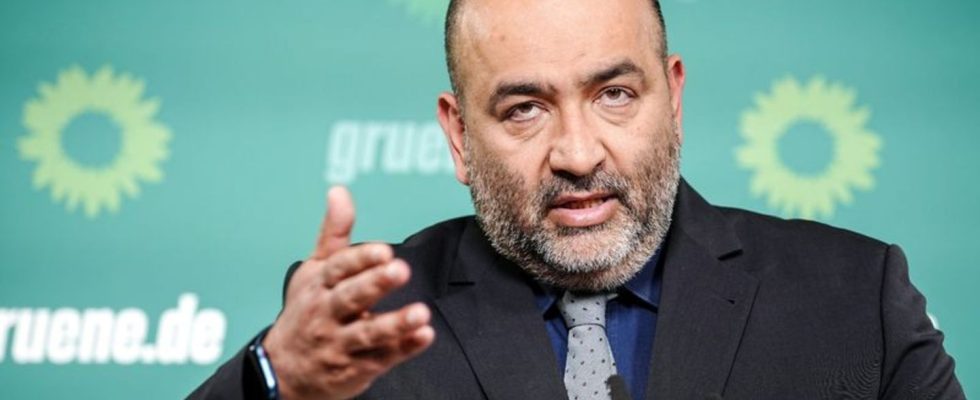migration
Green leader Nouripour wants to improve the asylum compromise
Green leader Omid Nouripour defends the asylum compromise, but also relies on improvements. photo
© Kay Nietfeld/dpa
The Greens are very upset about the planned tightening of European asylum rules. Party leader Nouripour tries to appease. The Union, on the other hand, is not going fast enough.
The planned tightening of European asylum rules continues to cause controversial discussions in Germany. Greens members in particular are outraged that the federal government has approved the reform plans. Greens leader Omid Nouripour defended the approval – but he also relies on improvements when the European Parliament is on the train. Union politicians called on the traffic light government of Chancellor Olaf Scholz (SPD) to take steps to curb illegal migration to Germany before the reform comes into force.
The parliamentary manager of the Union faction, Thorsten Frei (CDU), told the “Augsburger Allgemeine”: “We also need national measures to combat illegal migration and we need them immediately.” A reform of the common European asylum policy will show its effects at best in two or three years. Many municipalities have already reached or exceeded the limit when it comes to accepting migrants.
CDU General Secretary: Asylum compromise first important step
CDU General Secretary Mario Czaja told the newspapers of the Bayern media group that a compromise at EU level alone would not be enough. “It is now the responsibility of the federal government to implement further steps to limit illegal migration. For example, when expanding safe countries of origin.” So-called safe countries of origin are countries where it is generally assumed that there is neither political persecution nor inhumane punishment or treatment. This should enable faster asylum decisions and deportations.
The EU states voted in Luxembourg on Thursday with a sufficiently large majority for a comprehensive reform. In particular, a much tougher treatment of migrants with no prospects of staying is planned. In the future, people arriving from countries that are considered safe should come to strictly controlled reception facilities under conditions similar to detention after crossing the border. There, it would normally be checked within twelve weeks whether the applicant has a chance of asylum. If not, it should be sent back immediately.
In the negotiations, the federal government had advocated that families with children be exempted from the so-called border procedures. In order to make the breakthrough possible, she ultimately had to accept that this could be possible. However, it is conceivable that the EU Parliament will still push through changes. It has a say in the reform and will negotiate the project with representatives of the EU states in the coming months.
Nouripour: Agreement is ‘not governing law’
Green leader Omid Nouripour said in the evening in the ZDF “heute journal”: “What has been agreed is first of all a political agreement. It is not applicable law.” The European Parliament will play an important role in the implementation of law and order. The Greens are not alone in wanting to make some improvements, said Nouripour.
The Green MEP Erik Marquardt doubted in the ARD “Tagesthemen” that the planned reform would curb irregular migration. If there are large camps at the external borders, the conditions for migrants there would be even worse. “These poor conditions then mean that there is even more imbalance in Europe, that people have incentives not to register or report to the external border states there at all, but they will then take smugglers who might go directly to come to Germany.” The deputy criticized that it was not clear what would improve the planned reform.

